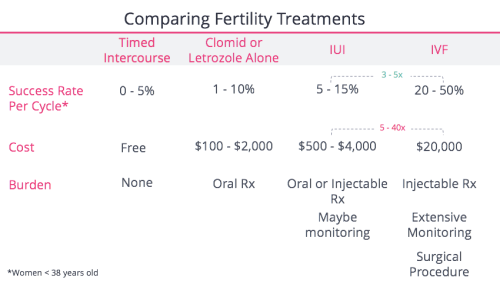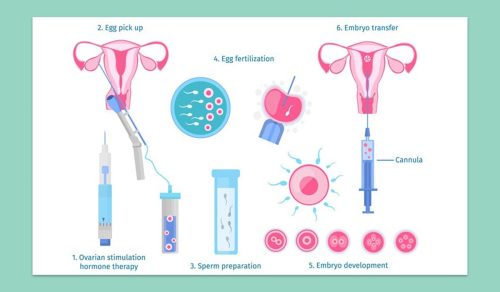
Low Sperm Count and Infertility: A Fertility Specialist’s Perspective
As a fertility specialist, I’ve encountered countless couples struggling with infertility, and one thing I’ve learned over the years is that the emotional and physical toll of infertility affects both partners. But while much of the conversation around fertility focuses on women’s health, there’s another key factor we can’t overlook: men’s reproductive health. One of the most common issues I see in my practice is low sperm count—a condition that can contribute to male infertility and significantly impact a couple’s ability to conceive.
Low sperm count can feel like a devastating diagnosis for men, but the truth is, there’s a lot we can do to help. In this article, I’ll share my insights on low sperm count, how it affects fertility, and some of the treatments that have proven successful in my practice.
What Is Low Sperm Count?
Low sperm count, also known as oligospermia, refers to a condition in which a man has fewer sperm in his semen than what is considered normal. The World Health Organization (WHO) defines a low sperm count as having fewer than 15 million sperm per milliliter of semen. However, it’s important to note that sperm count alone doesn’t always determine fertility—sperm quality (motility and morphology) plays a crucial role too.
When I sit down with couples who are struggling to conceive, I often start by explaining that sperm count is just one piece of the puzzle. Many men with low sperm counts can still father children, especially with the right treatment. But for others, low sperm count can make it more difficult to conceive naturally.
The Story of Tom and Sarah
I’ll never forget the case of Tom and Sarah, a couple in their early 30s who had been trying to get pregnant for over a year without success. Sarah was healthy, had regular cycles, and no significant medical history. But Tom had a much different story. He had been feeling frustrated, unsure if he was the one contributing to the infertility issues.
When we ran Tom’s semen analysis, we discovered that his sperm count was significantly below the normal range. In fact, his count was only about 2 million sperm per milliliter—far lower than the 15 million threshold. Tom was understandably devastated. He kept asking me, “Is it still possible for us to have a baby?”
Dr. Samantha Lee, one of my trusted colleagues in male fertility, often says, “It’s important for men to understand that a low sperm count doesn’t mean they’re doomed. The body is resilient, and with the right treatment, a lot of men can still achieve their dream of becoming fathers.”
For Tom and Sarah, we began a treatment plan designed to address his low sperm count and increase the likelihood of conception. I’ll explain the steps we took in a moment, but first, let’s explore some of the most common causes of low sperm count.
What Causes Low Sperm Count?
There are many factors that can contribute to low sperm count, and it’s not always clear why some men experience this condition. Here are some of the most common causes I see in my practice:
- Health and Lifestyle Factors: Poor diet, obesity, smoking, excessive alcohol consumption, and stress can all negatively affect sperm production. The lifestyle choices men make have a profound impact on sperm health. I always encourage my patients to maintain a healthy weight, exercise regularly, and avoid substances that can harm sperm production.
- Varicocele: A varicocele is an enlargement of veins within the scrotum that can cause overheating of the testicles, leading to reduced sperm production. This is one of the most common physical causes of low sperm count, and fortunately, it can often be treated with surgery.
- Hormonal Imbalances: Low levels of testosterone or other hormonal issues can impair sperm production. This can be diagnosed with blood tests and often treated with medication.
- Infections and Medical Conditions: Certain infections, such as sexually transmitted diseases (STDs) or epididymitis (an infection of the tube that carries sperm), can damage sperm production. Other medical conditions like diabetes or thyroid disorders can also impact fertility.
- Genetic Factors: In some cases, low sperm count can be linked to genetic factors, such as Klinefelter syndrome or other chromosomal abnormalities. In these cases, sperm production can be affected from birth.
- Environmental Factors: Exposure to environmental toxins such as pesticides, heavy metals, or radiation can also contribute to low sperm count. In modern life, this can sometimes be hard to avoid, but reducing exposure where possible is key.
How We Treated Tom’s Low Sperm Count
In Tom’s case, we began by addressing some lifestyle factors. He had been under significant stress from work and had a poor diet. I suggested making some changes, such as improving his diet, exercising more, and reducing stress. We also advised him to stop smoking and limit alcohol consumption.
However, these changes alone wouldn’t be enough to increase his sperm count dramatically. We also explored medical treatments.
Dr. Lee often says, “Treating low sperm count is a multifaceted approach. We start with the basics—lifestyle and health—but we also look deeper to see if there’s an underlying medical cause that needs attention.”
Tom underwent a thorough evaluation, including hormone testing and a scrotal ultrasound. His hormone levels were slightly off, and we suspected a mild case of hypogonadism (low testosterone), which can sometimes reduce sperm count. I prescribed medication to help balance his hormones.
Additionally, Tom was found to have a varicocele—a common condition that can negatively impact sperm production. We referred him for surgery to remove the varicocele, which would improve blood flow to the testicles and enhance sperm quality.
Treatment Options for Low Sperm Count
When it comes to treating low sperm count, there are several options available, depending on the underlying cause. Here are some of the most common treatments I use in my practice:
- Lifestyle Changes: Improving diet, exercise, and stress management can make a big difference. Weight loss, avoiding smoking and alcohol, and minimizing exposure to toxins can all help improve sperm count and quality.
- Medications: Hormonal treatments, such as Clomid or hCG injections, can help men with low testosterone or other hormonal imbalances. These medications can stimulate sperm production in some cases.
- Surgery: For men with varicoceles or blockages in the reproductive system, surgery may be necessary to improve sperm count. The surgery is often minimally invasive and can have a significant impact on fertility.
- Assisted Reproductive Technologies (ART): If other treatments aren’t successful, intrauterine insemination (IUI) or in vitro fertilization (IVF) may be viable options. In some cases, intracytoplasmic sperm injection (ICSI), a technique where a single sperm is injected directly into an egg, can be used to overcome low sperm count.
Tom and Sarah’s Success Story
After several months of treatment, Tom’s sperm count improved significantly, and Sarah and Tom were able to conceive naturally. They were overjoyed when they found out they were expecting, and I couldn’t be happier for them.
It’s cases like these that remind me why I love what I do. Helping couples who have been struggling to achieve their dream of parenthood is incredibly rewarding, and I’m always amazed by how much progress can be made with the right treatment and support.
Conclusion: Low Sperm Count Is Not a Dead End
If you’ve been told that you have low sperm count, don’t lose hope. As I always tell my patients, “Fertility is a journey, and with the right treatment, many men can still have a biological child.” It’s important to get a thorough evaluation to understand the underlying cause and explore your options. Whether it’s lifestyle changes, medications, or assisted reproductive technologies, there’s a good chance you can overcome low sperm count and achieve your dream of becoming a father.
If you’re struggling with infertility, I encourage you to consult with a fertility specialist who can guide you through the process and offer personalized solutions. Your journey to parenthood may take time, but with patience, treatment, and the right support, it’s possible to make that dream a reality.




